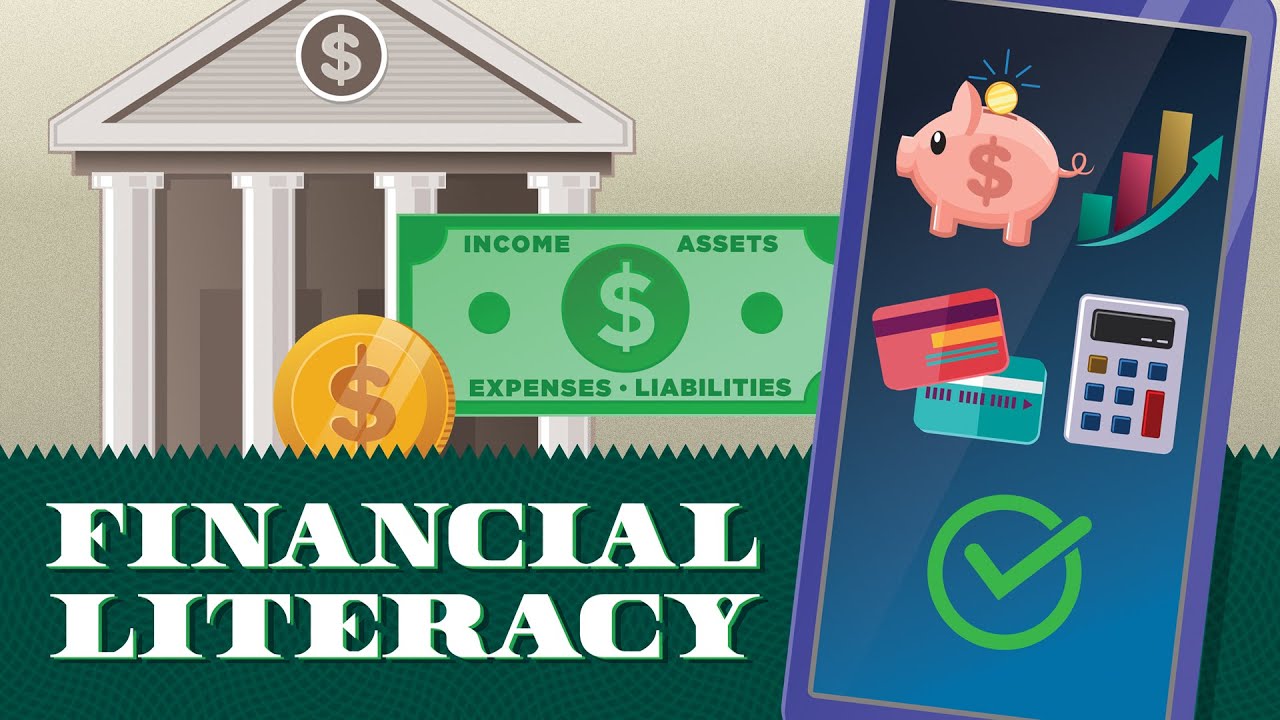Pemberdayaan Masyarakat
Summary
TLDRThis video script provides an insightful overview of financial literacy, covering essential concepts such as money, income, savings, investments, and financial planning. It discusses the importance of managing personal finances to achieve life goals and avoid financial difficulties. Key topics include understanding income and expenses, the difference between savings and investments, the significance of financial literacy in making informed decisions, and practical tips for budgeting and saving. The script emphasizes the value of financial knowledge in enhancing the ability to plan, invest, and secure long-term financial stability.
Takeaways
- 😀 Uang (money) serves as a legal payment tool and was introduced as an alternative to barter to resolve the difficulties of exchanging goods with incompatible value.
- 😀 People earn income through work or providing production factors, but often face financial problems due to a mismatch between income and needs or desires.
- 😀 Managing finances effectively can help individuals meet their needs even with a limited income, while poor financial management can lead to difficulties regardless of income size.
- 😀 Savings help individuals to manage unexpected expenses, with banks offering safer alternatives than saving at home due to security and insurance guarantees.
- 😀 Investments aim to increase wealth, with options like stocks, bonds, and mutual funds offering returns, but they require careful consideration to avoid scams and risks.
- 😀 Financial literacy is essential to make informed financial decisions and avoid harmful outcomes, as it helps individuals understand how to manage money and investments effectively.
- 😀 The literacy rate for financial knowledge in Indonesia is low, with a national survey revealing only 38.03% of people are financially literate, indicating a need for improved financial education.
- 😀 Sound financial management involves setting clear financial goals, creating a budget, tracking expenses, and making informed choices between needs and wants.
- 😀 Personal financial planning involves short-term, medium-term, and long-term goal setting, which helps ensure that a person can achieve financial independence and handle emergencies.
- 😀 Various budgeting methods, such as the envelope system, cashbook system, and family cash system, can be used to manage finances and allocate spending effectively across categories like daily expenses and savings.
Q & A
What is the primary purpose of money in society?
-Money serves as a medium of exchange, allowing individuals to fulfill their needs and wants by facilitating transactions. It eliminates the challenges of the barter system and ensures a standardized way of valuing goods and services.
How does income impact an individual's consumption behavior?
-An individual's income directly influences their consumption. According to Engel's Law, as income increases, a smaller percentage of income is spent on consumption, while larger portions are saved. Conversely, with lower income, a greater percentage is allocated to consumption.
What is the difference between savings and investment?
-Savings refers to money set aside for future use, often stored in a safe place like a bank. Investment, on the other hand, involves using money to acquire assets like stocks, bonds, or real estate, with the expectation of generating returns or profits over time.
What are the risks associated with investment scams?
-Investment scams often promise unusually high returns with little risk. Red flags include offers of quick profits, lack of transparency about the business, and pressure to recruit others. Such schemes typically involve high risks and can lead to financial losses.
What are the four levels of financial literacy according to OJK?
-The four levels of financial literacy as defined by OJK are: 1) Well-Literate, where individuals are confident and knowledgeable about using financial services; 2) Sufficiently Literate, where individuals have basic knowledge but need further development; 3) Plus-Literate, indicating less understanding of financial institutions; and 4) Illiterate, where individuals have no knowledge or confidence in financial products and services.
How can poor financial literacy affect an individual's financial decisions?
-Low financial literacy can lead to poor financial decisions, such as excessive spending, taking on risky loans, and investing in unsuitable schemes. It can also result in people spending more than they save and falling into debt traps.
What is the role of budgeting in personal financial management?
-Budgeting plays a critical role in managing finances by helping individuals allocate their income to essential expenses, savings, and investments. It ensures that expenditures do not exceed income and helps plan for future financial goals.
What are the key benefits of understanding financial literacy?
-Financial literacy helps individuals make informed decisions about managing their money. Benefits include the ability to choose appropriate financial products, avoid bad investments, plan for future goals, and maintain financial stability.
Why is it important to distinguish between needs and wants in financial planning?
-Distinguishing between needs and wants is crucial for effective financial planning because it helps prioritize essential expenses, ensuring that necessary items are covered before spending on non-essential desires. This helps maintain financial balance and prevents overspending.
What are some methods for managing household finances effectively?
-Methods for effective household financial management include creating a budget, tracking income and expenses, prioritizing expenditures, saving regularly, and reviewing financial goals periodically. Popular systems like the envelope system and daily cashbooks can also help maintain financial discipline.
Outlines

This section is available to paid users only. Please upgrade to access this part.
Upgrade NowMindmap

This section is available to paid users only. Please upgrade to access this part.
Upgrade NowKeywords

This section is available to paid users only. Please upgrade to access this part.
Upgrade NowHighlights

This section is available to paid users only. Please upgrade to access this part.
Upgrade NowTranscripts

This section is available to paid users only. Please upgrade to access this part.
Upgrade NowBrowse More Related Video

How to make money work for You (So you are not poor)

MATERI KONSEP KEUANGAN DAN PENGELOLAAN KEUANGAN KELUARGA Kelas VII Semester Genap #UANG

Materi IPS Kelas 7 Tema 04 Pemberdayaan Masyarakat || C. Pemberdayaan Masyarakat

Educazione Finanziaria

Financial Literacy - Full Video

Start planning your MONEY like this!
5.0 / 5 (0 votes)